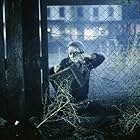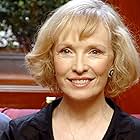Fanny, born into a poor family, is sent away to live with wealthy uncle Sir Thomas, his wife and their four children, where she'll be brought up for a proper introduction to society.Fanny, born into a poor family, is sent away to live with wealthy uncle Sir Thomas, his wife and their four children, where she'll be brought up for a proper introduction to society.Fanny, born into a poor family, is sent away to live with wealthy uncle Sir Thomas, his wife and their four children, where she'll be brought up for a proper introduction to society.
- Awards
- 5 nominations
- Director
- Writers
- All cast & crew
- Production, box office & more at IMDbPro
Storyline
Did you know
- TriviaThe various stories Fanny Price writes are actually Jane Austen's Juvenilia, written when she was a teenager.
- GoofsWhen Fanny is undressing after being caught in the rain, she undoes her corset by unhooking a metal busk at the front, this style of busk was not invented until the mid 19th century, and the film is set in 1806. Her busk instead should have been wooden or whalebone, and if it unfastened in front it would have been laced.
- Quotes
Fanny Price: Life seems nothing more than a quick succession of busy nothings.
- Alternate versionsOne sex scene was cut from the US version in order to obtain a PG rating.
- SoundtracksDjongna (Slavery)
Written and Performed by Salif Keïta
Featured review
I have to wonder if the folks who are praising this film to the skies have ever read the book. I am not a Jane Austen purist - if I were, I could not say that the Root/Hinds version of Persuasion was my favorite Austen adaptation, which it is. This is Patricia Rozema's Mansfield Park, NOT Jane Austen's.
First, Rozema gives us a feisty, spirited Fanny Price, who tells off Aunt Norris and Sir Thomas, who accepts Henry Crawford's proposal, and then rejects it the next day (a la JA herself with Harris Bigg-Wither). In this MP, Sir Thomas deserves to be "told off." He is portrayed as a lecherous "dirty old man," who leers at Fanny and Mary Crawford throughout the film.
We have all heard about the additions Rozema made to the film. She deals with the slavery issue in a very heavy-handed way, beating us over the head with it whenever possible. Tom Bertram is not the empty-headed fop he is in JA's book; here he is just as much an abolitionist as Fanny, and it is his sketchbook filled with incriminating drawings of Sir Thomas abusing the slaves in Antigua that Fanny finds. In fact, Rozema's take on Tom is rather bizarre; in the book, his arguments with his father center around his irresponsibility and his profligacy. In the film, while Sir Thomas tries to scold his son for these faults, Tom takes him to task for his activities in Antigua. What I found odd was that, if Tom is such an abolitionist, why would he be so free and easy with money tainted by the slave trade?
Rozema left out what I consider to be some very important people and scenes. William Price and the Grants are nowhere to be seen; as a result, there is no amber cross bought with prize money, no distress over which chain to wear to the ball, no one to accompany Fanny to Portsmouth. Fanny's dislike and distrust of Henry are never fully explained. We never get to see the outing to Sotherton and, while we do see Maria flirting relentlessly with Henry, we never see him playing one sister off against the other. Fanny's disapproval of the theatricals is never explained either. In Rozema's version, it seemed as if Fanny was simply not invited to be in the play, instead of being unalterably opposed to it. The scene with Fanny playing Anhalt to help Mary Crawford rehearse is also completely wrong. Mary starts caressing Fanny, while Edmund watches with his eyes almost popping out of his head. So, instead of Edmund giving in and joining the play in order to spare his family the embarrassment of publicity, we are left with the impression that he takes on the role of Anhalt just so that he can justify having Mary run her hands all over him.
Next, we have the scenes at Portsmouth. Here, we have Henry sending Fanny a display of fireworks and doves, and then we see her accepting his proposal and sealing the bargain with some less-than-chaste kisses - in public, no less! The (in)famous sex scene between Maria and Henry takes place at Mansfield Park rather than in London and, because Rozema has played with JA's chronology of events, Fanny is already back from Portsmouth, and it is she who catches them in the act. Edmund is present for the aftermath, where Maria tries to defend her actions.
Another thing that galled me no end is that Mary Crawford's defense of her brother's actions is done in person, at Mansfield Park. She is patronizing towards all concerned, including Sir Thomas, who has finally stopped leering by this point. The newspaper item announcing Maria and Henry's behavior to the world is read by Fanny, and the culprits' full names are used, which is also not the way it happened in the book.
A couple of people walked out about 1/3 of the way through the screening I attended, and several others walked out just as the credits began. The Wishbone versions of Pride & Prejudice and Northanger Abbey resemble the source material more than this trash does. Shame on you Ms. Rozema, shame on you!
First, Rozema gives us a feisty, spirited Fanny Price, who tells off Aunt Norris and Sir Thomas, who accepts Henry Crawford's proposal, and then rejects it the next day (a la JA herself with Harris Bigg-Wither). In this MP, Sir Thomas deserves to be "told off." He is portrayed as a lecherous "dirty old man," who leers at Fanny and Mary Crawford throughout the film.
We have all heard about the additions Rozema made to the film. She deals with the slavery issue in a very heavy-handed way, beating us over the head with it whenever possible. Tom Bertram is not the empty-headed fop he is in JA's book; here he is just as much an abolitionist as Fanny, and it is his sketchbook filled with incriminating drawings of Sir Thomas abusing the slaves in Antigua that Fanny finds. In fact, Rozema's take on Tom is rather bizarre; in the book, his arguments with his father center around his irresponsibility and his profligacy. In the film, while Sir Thomas tries to scold his son for these faults, Tom takes him to task for his activities in Antigua. What I found odd was that, if Tom is such an abolitionist, why would he be so free and easy with money tainted by the slave trade?
Rozema left out what I consider to be some very important people and scenes. William Price and the Grants are nowhere to be seen; as a result, there is no amber cross bought with prize money, no distress over which chain to wear to the ball, no one to accompany Fanny to Portsmouth. Fanny's dislike and distrust of Henry are never fully explained. We never get to see the outing to Sotherton and, while we do see Maria flirting relentlessly with Henry, we never see him playing one sister off against the other. Fanny's disapproval of the theatricals is never explained either. In Rozema's version, it seemed as if Fanny was simply not invited to be in the play, instead of being unalterably opposed to it. The scene with Fanny playing Anhalt to help Mary Crawford rehearse is also completely wrong. Mary starts caressing Fanny, while Edmund watches with his eyes almost popping out of his head. So, instead of Edmund giving in and joining the play in order to spare his family the embarrassment of publicity, we are left with the impression that he takes on the role of Anhalt just so that he can justify having Mary run her hands all over him.
Next, we have the scenes at Portsmouth. Here, we have Henry sending Fanny a display of fireworks and doves, and then we see her accepting his proposal and sealing the bargain with some less-than-chaste kisses - in public, no less! The (in)famous sex scene between Maria and Henry takes place at Mansfield Park rather than in London and, because Rozema has played with JA's chronology of events, Fanny is already back from Portsmouth, and it is she who catches them in the act. Edmund is present for the aftermath, where Maria tries to defend her actions.
Another thing that galled me no end is that Mary Crawford's defense of her brother's actions is done in person, at Mansfield Park. She is patronizing towards all concerned, including Sir Thomas, who has finally stopped leering by this point. The newspaper item announcing Maria and Henry's behavior to the world is read by Fanny, and the culprits' full names are used, which is also not the way it happened in the book.
A couple of people walked out about 1/3 of the way through the screening I attended, and several others walked out just as the credits began. The Wishbone versions of Pride & Prejudice and Northanger Abbey resemble the source material more than this trash does. Shame on you Ms. Rozema, shame on you!
- How long is Mansfield Park?Powered by Alexa
Details
- Release date
- Countries of origin
- Official site
- Language
- Also known as
- Менсфілд Парк
- Filming locations
- Kirby Hall, Corby, Northamptonshire, England, UK(Mansfield Park)
- Production companies
- See more company credits at IMDbPro
Box office
- Gross US & Canada
- $4,775,847
- Opening weekend US & Canada
- $85,608
- Nov 21, 1999
- Gross worldwide
- $4,775,847
- Runtime1 hour 52 minutes
- Color
- Sound mix
- Aspect ratio
- 1.85 : 1
Contribute to this page
Suggest an edit or add missing content
























